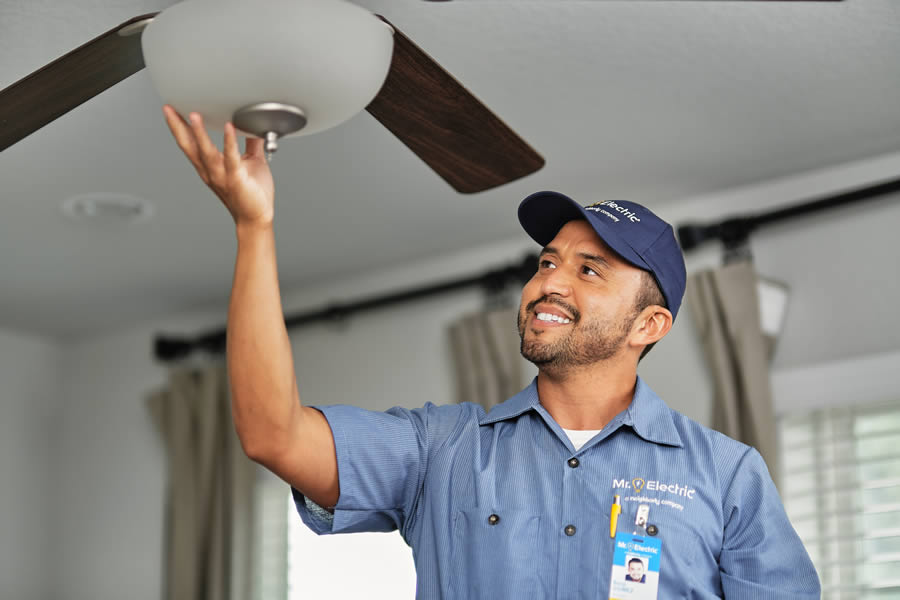Call This Thursday to Get 25$ OFF
24-Hour Emergency Electricians in San Antonio
Call this Thursday to Get 25$ OFF
Need an Electirician?
SCHEDULE SERVICE NOWCall Us Now
210-955-9600Call This Thursday to Get 25$ OFF
24-Hour Emergency Electricians in San Antonio
Call this Thursday to Get 25$ OFF
Need an Electirician?
SCHEDULE SERVICE NOWCall Us Now
210-955-9600
Ceiling fans have come a long way from being just functional cooling fixtures to becoming stylish, energy-efficient additions to homes and businesses. However, the sheer variety of ceiling fans available in the market can make selecting the right one a daunting task. To help you make an informed decision, your friends at Mr. Electric have compiled this quick guide into choosing a new ceiling fan for your property.
If you are looking for a uniformed and certified electrician to handle your ceiling fan installation, then call Mr. Electric and schedule a convenient appointment today. Our electricians also offer ceiling fan and exhaust fan replacement as well as general electrical repair service.
The first step in choosing the ideal ceiling fan is determining the right size for your space. Ceiling fans come in various diameters, typically ranging from 24 to 72 inches. To get it right, consider the room's square footage.
For rooms up to 144 square feet, opt for a fan with a 36 to 42-inch blade span. Medium-sized rooms between 144 and 225 square feet are best suited for fans with blade spans of 44 to 50 inches. If you have a spacious room exceeding 225 square feet, go for a fan with a blade span of 52 inches or more.
Another important factor is the height of your ceilings. Ceiling fan height is crucial for both aesthetics and functionality. For standard ceilings (8 to 9 feet), a flush-mount or standard downrod fan works well. However, for higher ceilings, consider an extended downrod to ensure the fan is at an optimal height for efficient air circulation.
Blades come in various materials, including wood, metal, and plastic. Wooden blades tend to be quieter and provide a traditional aesthetic, while metal blades are more durable and modern in appearance. Plastic blades are an affordable alternative. The blade design also affects airflow; steeper blades typically move more air but may be noisier.
The heart of any ceiling fan is its motor. Opt for fans with high-quality, energy-efficient motors, preferably those with the Energy Star label. These fans are not only quieter but also consume less energy, saving you money in the long run.
Also consider a fan with a reversible motor. This feature allows you to switch the fan's direction, enabling it to provide cooling during the summer and distributing warm air during the winter.
Some ceiling fans come with built-in lights, making them a dual-purpose fixture. Choose the type and brightness of the lighting that suits your space, whether it's LED, incandescent, or fluorescent.
Ceiling fans have embraced technology beyond lighting, with many models offering remote controls and even smart capabilities. These features provide convenience and allow you to adjust fan speed, lighting, and direction with ease.
Lastly, consider the manufacturer's reputation, warranty, and customer support. A reliable company will stand by its product, ensuring you have a hassle-free experience in case of any issues.